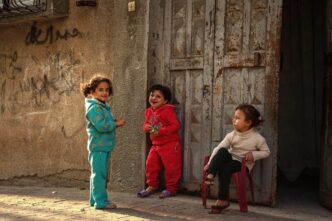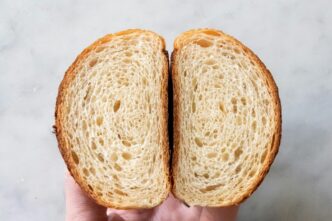In the heart of London, where financial districts tower over some of the most deprived neighborhoods, Rumi’s Kitchen stands as a beacon of compassion. Named after the great Sufi poet and Islamic scholar Jalal al-Din Rumi, this soup kitchen is more than just a place to get a hot meal—it is a space of community, dignity, and hope for those struggling with food insecurity.
At a time when food banks are overwhelmed, homelessness is rising, and government support systems are failing, faith-driven initiatives like Rumi’s Kitchen are bridging the gap between despair and survival. But while Rumi’s Kitchen serves hundreds, the need for many more such initiatives is becoming impossible to ignore.
This article explores the story of Rumi’s Kitchen, the urgent rise in food insecurity in the UK, and why faith-based and community-led soup kitchens are needed more than ever.
The Story of Rumi’s Kitchen: Food as an Act of Worship
Rumi’s Kitchen was founded with a simple but powerful mission: to feed those in need, regardless of background, faith, or circumstance. What began as a small initiative has grown into a lifeline for hundreds of people, serving fresh, nutritious meals to the homeless, the elderly, asylum seekers, and those struggling with the cost-of-living crisis.
At its core, Rumi’s Kitchen is inspired by Islamic teachings on feeding the hungry. The Prophet Muhammad (PBUH) emphasized this act as one of the greatest virtues:
“The best of you are those who feed others.” (Ahmad, 23408)
Islamic tradition places food at the center of hospitality, generosity, and community-building. Zakat (obligatory charity) and sadaqah (voluntary charity) ensure that wealth circulates to support the poor, and throughout history, Muslim societies have established soup kitchens (known as imarets) to serve the less fortunate.
Rumi’s Kitchen follows this rich tradition, providing not just food but companionship, warmth, and human connection to those who walk through its doors. Volunteers describe it as a place where no one leaves hungry—not just for food, but for kindness and dignity.
But while Rumi’s Kitchen is making a difference, it is only one initiative in a city where thousands go to bed hungry each night.
The Growing Need for Soup Kitchens in the UK
Food Insecurity at a Breaking Point
The UK is experiencing a food poverty crisis unlike anything seen in decades. According to the Trussell Trust, food bank use has hit record levels, with over 3 million emergency food parcels distributed in the past year alone. Meanwhile, one in five households struggles to afford enough food.
The cost-of-living crisis has pushed many working families, single parents, and pensioners into food insecurity, forcing them to make impossible choices:
- Heat or eat? With energy prices soaring, many low-income families are skipping meals to afford heating.
- Rent or groceries? Skyrocketing housing costs mean food is often the first expense to be cut.
- School meals or empty lunchboxes? Increasing numbers of children rely on free school meals as their main source of nutrition.
For many people, Rumi’s Kitchen and similar initiatives are not just a convenience—they are a necessity.
Who Is Affected the Most?
While food poverty cuts across all demographics, certain communities are disproportionately affected:
- Refugees and asylum seekers, many of whom have no recourse to public funds, leaving them dependent on charity.
- Ethnic minorities, including British Muslim communities, who are more likely to face low wages, insecure work, and discrimination in the job market.
- The elderly and disabled, who are particularly vulnerable to rising living costs.
These statistics paint a grim picture: hunger is no longer confined to the homeless—it is affecting families, workers, and students.
The Power of Faith-Based and Community Initiatives
When Governments Fall Short, Faith Communities Step Up
With government policies failing to address food poverty, faith-based organizations and community-led initiatives have become the backbone of food aid in the UK. Mosques, churches, gurdwaras, and synagogues are mobilizing resources, volunteers, and donations to fill the gaps left by austerity policies.
In Islam, feeding the hungry is not charity—it is a duty. This is why many mosques across the UK have launched free meal programs, food banks, and community kitchens.
- East London Mosque operates a weekly food bank, distributing essential groceries to struggling families.
- Green Lane Masjid in Birmingham runs a hot meal service for the homeless.
- Gurdwaras (Sikh temples) have long provided langar (free communal meals) to all, regardless of faith.
Beyond Food: Restoring Dignity and Hope
Unlike government-run aid programs, faith-based and community-led soup kitchens provide more than just meals—they offer:
- A welcoming, non-judgmental space where people can eat with dignity.
- Social connection, reducing loneliness and isolation.
- A support network, offering job advice, housing assistance, and emotional support.
But despite their incredible impact, these initiatives face significant challenges in expanding their reach.
Challenges and Barriers to Expanding Soup Kitchens
1. Funding Shortages
While Rumi’s Kitchen relies on donations and volunteer efforts, sustaining and expanding such initiatives requires consistent financial support. Many faith-based food programs struggle to secure long-term funding, especially as demand increases.
2. Bureaucratic Hurdles
Community kitchens often face obstacles from local councils in obtaining permissions, securing venues, and navigating food safety regulations. In some cases, bureaucracy stifles grassroots efforts instead of supporting them.
3. Stigma and Misconceptions
There is still stigma attached to soup kitchens, with some viewing them as only for the homeless rather than a vital resource for working-class families and struggling individuals. Breaking down this misconception is key to ensuring those in need feel comfortable seeking help.
Why More Initiatives Like Rumi’s Kitchen Are Needed
A Call to Action for Individuals and Communities
As food poverty continues to rise, the need for more Rumi’s Kitchens has never been greater. But tackling hunger is not just the responsibility of mosques and charities—it requires collective action.
Here’s how individuals, businesses, and faith communities can help:
- Support existing soup kitchens – Volunteer, donate food, or contribute financially to initiatives like Rumi’s Kitchen.
- Encourage mosques and community centers to start food programs – Every local mosque should have a dedicated food aid initiative.
- Raise awareness about food poverty – Challenge the stigma and educate communities about the realities of food insecurity.
- Advocate for systemic change – Push local councils and MPs to increase funding for food aid programs and address the root causes of poverty.
- Collaborate across faiths and communities – Interfaith efforts can amplify the impact of food aid programs, fostering a spirit of shared humanity.
Conclusion: Food as a Sacred Duty
In a world of excess and waste, no one should go hungry—yet in one of the world’s wealthiest nations, food poverty is a growing humanitarian crisis.
Rumi’s Kitchen reminds us that charity is not just about giving—it is about restoring dignity, building community, and fulfilling a sacred duty.
The question is: How many more Rumi’s Kitchens will it take before food insecurity is no longer a crisis, but a thing of the past?
The answer lies with us. It is time to act.














